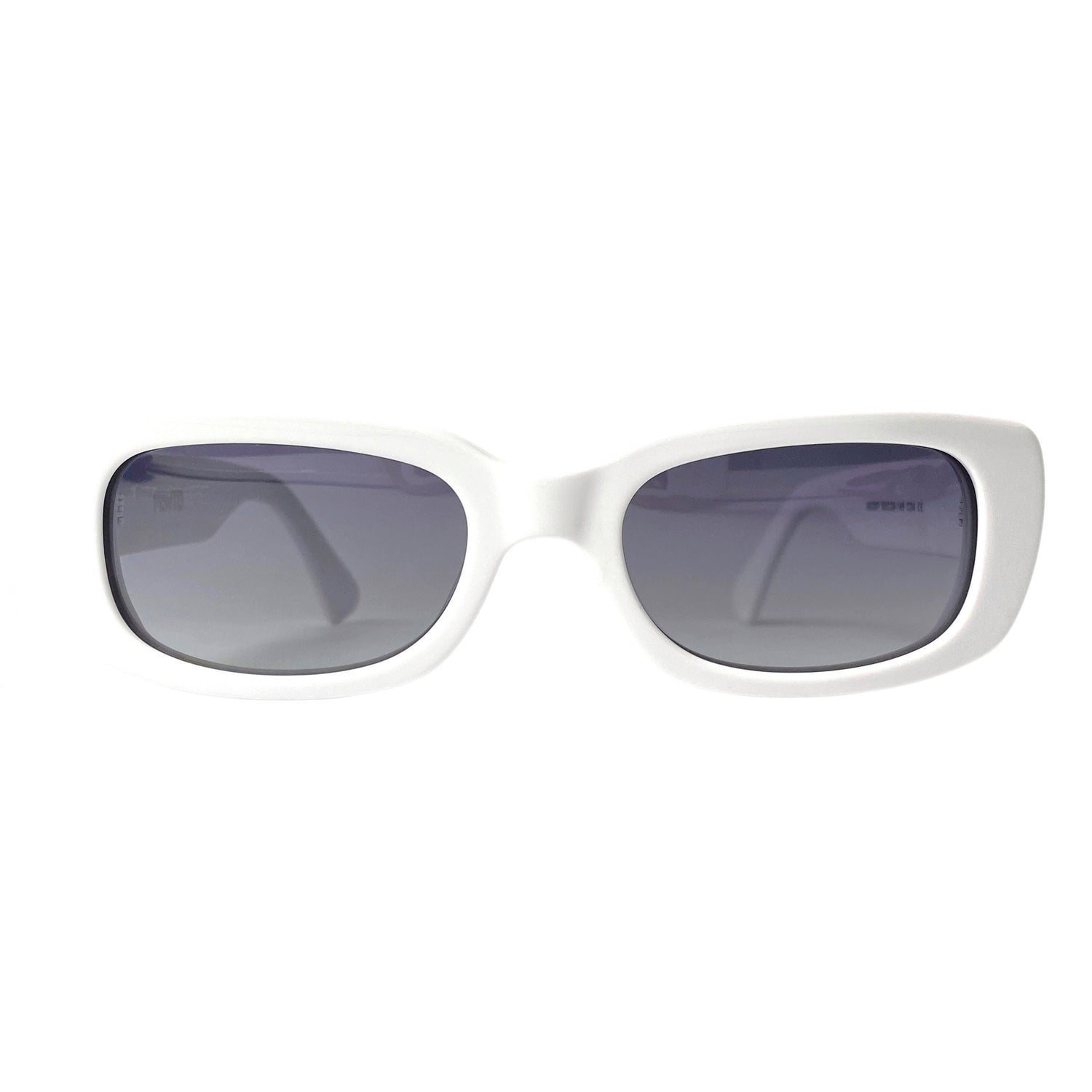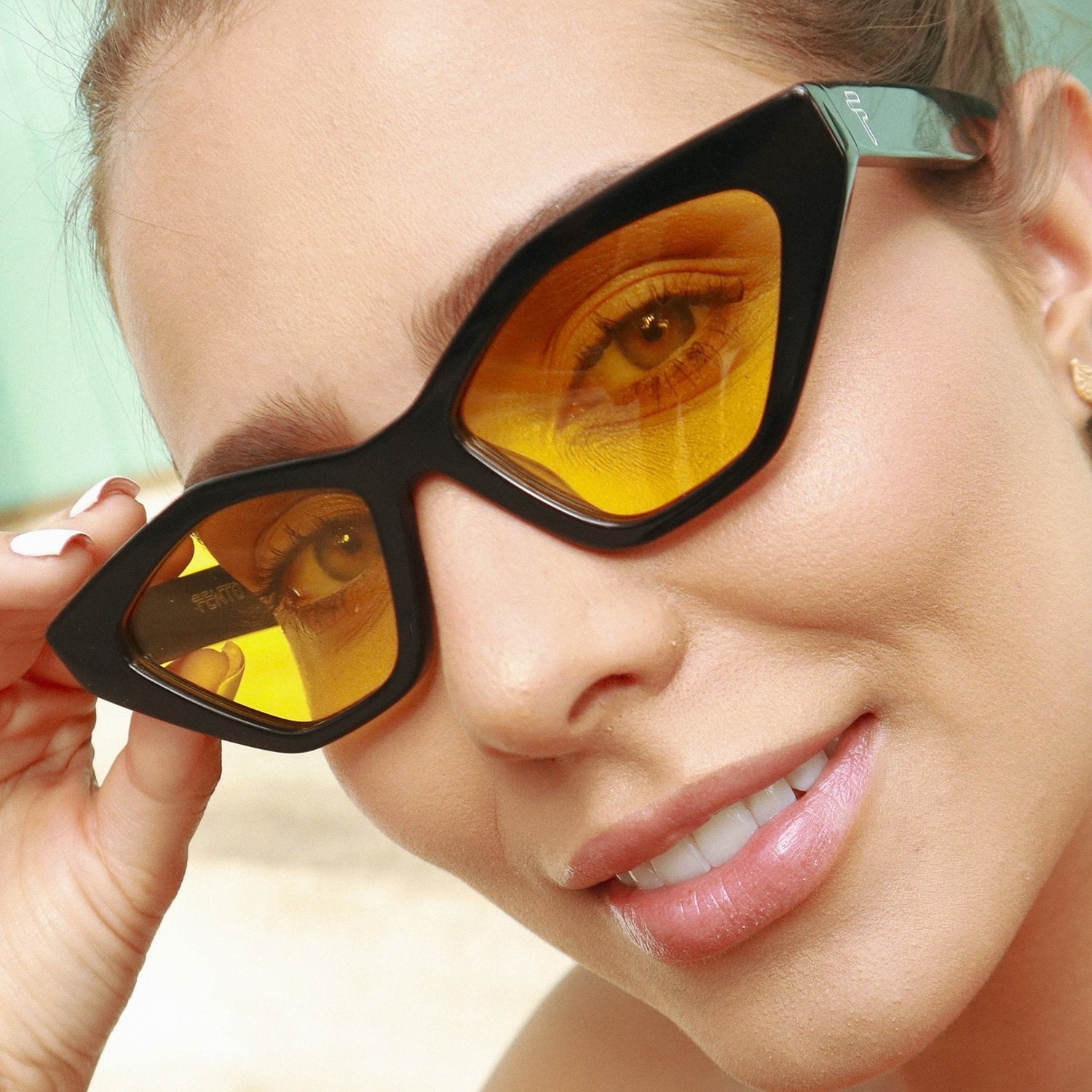
The Importance of UV400 Lenses: Shielding your Eyes from Harmful Rays
Share
As we go about our daily lives, our eyes are constantly exposed to the sun's harmful ultraviolet (UV) rays. These rays can have serious consequences on our eye health, leading to conditions such as cataracts, macular degeneration, and even skin cancer around the eyes. That's why it is crucial to protect our eyes with the right sunglasses, and UV400 lenses offer unparalleled protection.
Understanding UV radiation and its effects on the eyes
Before delving into the benefits of UV400 lenses, it's important to understand the science behind UV radiation and its impact on our eyes. UV radiation falls into three categories: UVA, UVB, and UVC. While UVC is mostly absorbed by the Earth's atmosphere, UVA and UVB penetrate through and can cause significant damage to the eyes and surrounding tissues.
The science behind UV radiation
UVA rays have longer wavelengths and can penetrate deep into the eyes, affecting the delicate structures within. These rays are present throughout the year and can pass through clouds and glass, making them a constant threat to our eyes. UVB rays, on the other hand, have shorter wavelengths and primarily affect the outer layers of the eyes, causing sunburned corneas and conjunctiva.
When UVA and UVB rays enter the eyes, they can trigger a series of reactions that can lead to short-term and long-term damage. The cornea, which acts as a protective shield for the eyes, can become inflamed and irritated when exposed to excessive UV radiation. This can result in a condition known as photokeratitis, or "sunburn of the eye," causing symptoms such as redness, pain, and a gritty sensation.
Furthermore, the lens of the eye, responsible for focusing light onto the retina, can be affected by UV radiation. Over time, cumulative exposure to UVA and UVB rays can lead to the development of cataracts, a clouding of the lens that can cause blurred vision and eventually require surgical intervention.
Potential harm caused by UV rays to the eyes
Long-term exposure to UV radiation can lead to various eye conditions. Cataracts, a clouding of the lens, are a common consequence of UV damage. As we age, the proteins in the lens can become damaged by UV radiation, leading to the formation of cataracts. These can cause vision to become blurry or hazy, making it difficult to perform daily activities such as reading or driving.
Macular degeneration, the leading cause of vision loss in older adults, is also linked to UV exposure. The macula is the central part of the retina responsible for sharp, detailed vision. Prolonged exposure to UV radiation can accelerate the degeneration of the macula, leading to a loss of central vision. This can make it challenging to recognize faces, read small print, or perform tasks that require fine visual acuity.
Additionally, UV rays can cause pterygium, a growth that encroaches onto the cornea and can distort vision. Pterygium is often associated with prolonged exposure to sunlight and is more common in individuals who spend a significant amount of time outdoors without proper eye protection. This growth can cause redness, irritation, and a sensation of a foreign body in the eye.
It is important to note that the effects of UV radiation on the eyes are cumulative and can occur over a lifetime of exposure. Therefore, taking proactive measures to protect our eyes from UV rays is crucial in maintaining good eye health and preventing long-term damage.
The role of UV400 lenses in eye protection
UV400 lenses provide a high level of protection against both UVA and UVB rays. But what exactly does UV400 mean, and how do these lenses work to shield your eyes from harmful rays?
When it comes to protecting your eyes from the harmful effects of UV radiation, UV400 lenses are the gold standard. The term "UV400" refers to the lenses' ability to block 99-100% of UV rays, including UVA and UVB. This level of protection ensures that your eyes are shielded from the entire spectrum of harmful radiation.
But how do UV400 lenses achieve such impressive protection? Let's take a closer look.
What does UV400 mean?
The term "UV400" is not just a catchy marketing phrase; it has a specific meaning. UV400 refers to the lenses' ability to block ultraviolet (UV) radiation with wavelengths up to 400 nanometers. This includes both UVA and UVB rays, which are known to be harmful to the eyes.
UV radiation is invisible to the naked eye, but its effects can be devastating. Prolonged exposure to UV rays can lead to a range of eye conditions, including cataracts, macular degeneration, and even certain types of eye cancer. That's why it's crucial to protect your eyes with lenses that offer UV400 protection.
How UV400 lenses work to protect your eyes
UV400 lenses are not your ordinary sunglasses. They are specially designed to provide maximum protection against UV radiation. So, how exactly do these lenses work to shield your eyes from harmful rays?
The secret lies in the special coating applied to UV400 lenses. This coating acts as a powerful barrier, absorbing and reflecting UV radiation so that it does not penetrate the lenses. When UV rays hit the lenses, they are either absorbed by the coating or bounced back, preventing them from reaching your eyes.
But it's not just about blocking UV rays. UV400 lenses also offer superior clarity and visual comfort. They are designed to reduce glare and enhance contrast, allowing you to see clearly even in bright sunlight. This makes them an excellent choice for outdoor activities such as hiking, skiing, or simply enjoying a sunny day at the beach.
Furthermore, UV400 lenses are available in a wide range of styles and colours, so you can protect your eyes in style. Whether you prefer classic aviators, trendy wayfarers, or sporty wraparound frames, there's a UV400 option to suit your taste and lifestyle.
So, the next time you're shopping for sunglasses, remember the importance of UV400 lenses. By choosing eyewear that offers this level of protection, you can enjoy the great outdoors while keeping your eyes safe from harmful UV rays. Invest in your eye health and see the world through UV400 lenses!
Comparing UV400 lenses with other types of sunglasses
When it comes to protecting your eyes, not all sunglasses are created equal. Let's compare UV400 lenses with standard sunglasses and polarized sunglasses to understand the differences.
Did you know that sunglasses have come a long way since their invention in the 12th century? Initially, sunglasses were made from flat panels of smoky quartz to protect the eyes from glare. However, it wasn't until the 20th century that sunglasses started to incorporate UV protection.
Standard sunglasses versus UV400 lenses
While standard sunglasses provide some level of UV protection, they may not block out the full spectrum of harmful rays. This means that even though you may feel protected, your eyes could still be exposed to UVA and UVB rays, which can lead to serious eye conditions such as cataracts and macular degeneration.
UV400 lenses, on the other hand, offer complete protection against UVA and UVB. The term "UV400" refers to the lenses' ability to block out all ultraviolet rays with wavelengths up to 400 nanometers. By wearing sunglasses with UV400 lenses, you can significantly reduce the risk of long-term damage to your eyes.
Polarized sunglasses and UV400 lenses: What's the difference?
Polarized sunglasses are designed to reduce glare, particularly from surfaces like water and snow. This is achieved through a special filter that blocks horizontally polarized light, which is the main cause of glare. By eliminating glare, polarized sunglasses enhance visual clarity and reduce eye strain.
However, it's important to note that polarized lenses do not necessarily provide UV protection. While they are effective in minimizing glare, they may not shield your eyes from harmful UV rays. This is where UV400 lenses shine. UV400 lenses combine UV protection with glare reduction, ensuring your eyes are fully shielded from both harmful rays and annoying glare.
It's worth mentioning that UV protection is crucial not only on sunny days but also on cloudy days. Even when the sun is hiding behind clouds, UV rays can still penetrate through and reach your eyes. By wearing sunglasses with UV400 lenses, you can enjoy clear vision and peace of mind, knowing that your eyes are well-protected.
So, whether you're heading to the beach, going for a hike, or simply taking a stroll in the park, make sure to choose sunglasses with UV400 lenses. Your eyes will thank you!
Choosing the right UV400 lenses for you
When purchasing UV400 sunglasses, it's important to consider a few factors to ensure the best fit and protection for your eyes.
Factors to consider when buying UV400 sunglasses
Look for sunglasses that provide 100% UV protection and are labeled as UV400. Additionally, consider the lens material, frame style, and overall comfort. Sunglasses that wrap around your face can offer greater coverage, while lightweight and durable materials enhance both comfort and longevity.
The importance of fit and comfort in UV400 sunglasses
Proper fit is crucial for optimal eye protection. Sunglasses that fit well will prevent UV rays from entering around the edges. Additionally, comfortable sunglasses are more likely to be worn consistently, ensuring continuous protection for your eyes.
The future of UV protection: advancements in UV400 lens technology
As technology continues to advance, so does our ability to protect our eyes from harmful UV rays. Let's explore the latest developments in UV400 lens technology and how they are further improving eye care.
Latest developments in UV400 lens technology
Researchers and eyewear manufacturers are constantly working to enhance UV400 lenses. New materials and coatings are being developed to maximize UV protection while maintaining excellent clarity and visual comfort.
How technology is improving UV protection for our eyes
Advancements in lens technology are enabling the creation of thinner, lighter, and more impact-resistant UV400 lenses. Additionally, these advancements allow for the incorporation of other beneficial features, such as scratch resistance and anti-reflective coatings, further enhancing the overall performance and longevity of UV400 sunglasses.
In conclusion, UV400 lenses play a vital role in protecting our eyes from the harmful effects of UV radiation. By choosing sunglasses with UV400 lenses, you can ensure that your eyes are shielded from UVA and UVB rays, reducing the risk of eye conditions and maintaining good eye health. Make it a priority to invest in quality sunglasses with UV400 protection, like those offered by Sun Amante, to safeguard your vision for years to come. Visit our website at sunamante.co.uk to browse our collection and find the perfect pair of UV400 sunglasses to suit your style and protect your eyes.








